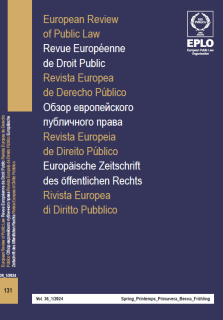
The Right to Education in the Age of Digital Technologies
Pablo Meix Cereceda
Associate professor of Administrative Law, University of Castilla-La Mancha, Spain
Technology can enhance human capabilities and be applied to human relationships, serving as a form of power. The education system has the potential to either reproduce preexisting social stratification or strengthen democratic societies. As digital technologies become increasingly prevalent in education, it is important to consider whether this combination could deepen the risk of domination and how it could work towards the full development of a child’s personality. While PISA does not offer conclusive information on the effects of technology, previous knowledge of learning processes suggests that there may be a risk to the acquisition of linguistic skills and, consequently, the ability to develop certain forms of complex thinking. The paper proposes that both teaching technology and teaching about technology in other subjects should include an ethical and legal dimension, as appropriate to the age of pupils. Additionally, the paper puts forward the right to non-digital education.
Keywords: Digitalization of education; domination; linguistic skills; full development of the personality
La technologie peut renforcer les capacités humaines et être appliquée aux relations humaines, servant ainsi comme une forme de pouvoir. Le système éducatif peut soit reproduire la stratification sociale préexistante, soit renforcer les sociétés démocratiques. Les technologies numériques devenant de plus en plus présentes dans l’éducation, il est important de se demander si cette combinaison peut aggraver le risque de domination et comment elle peut contribuer au plein développement de la personnalité de l’enfant. Bien que l’enquête PISA n’offre pas d’informations concluantes sur les effets de la technologie, les connaissances antérieures sur les processus d’apprentissage suggèrent qu’il pourrait y avoir un risque pour l’acquisition de compétences linguistiques et, par conséquent, pour la capacité à développer certaines formes de pensée complexe. Le document propose que l’enseignement de la technologie et l’enseignement portant sur la technologie dans d’autres matières devraient inclure une dimension éthique et juridique, en fonction de l’âge des élèves. En outre, le document met en avant le droit à une éducation non numérique.
Mots-clés: Numérisation de l’éducation; domination; compétences linguistiques; plein développement de la personnalité
*Research funded by the Spanish Ministry of Science (project “Opportunities and legal protection of vulnerable groups in the face of digitalization and AI”: PRODIGIA, PID2021-124967OB-I00), and the Region Castilla-La Mancha (project “Digitalization and vulnerable groups: protection, safeguards and proposals for implementation”: PRODIGITAL, SBPLY/21/180501/000089). Both projects headed by Profs. Susana de la Sierra and Juana Morcillo Moreno.





















